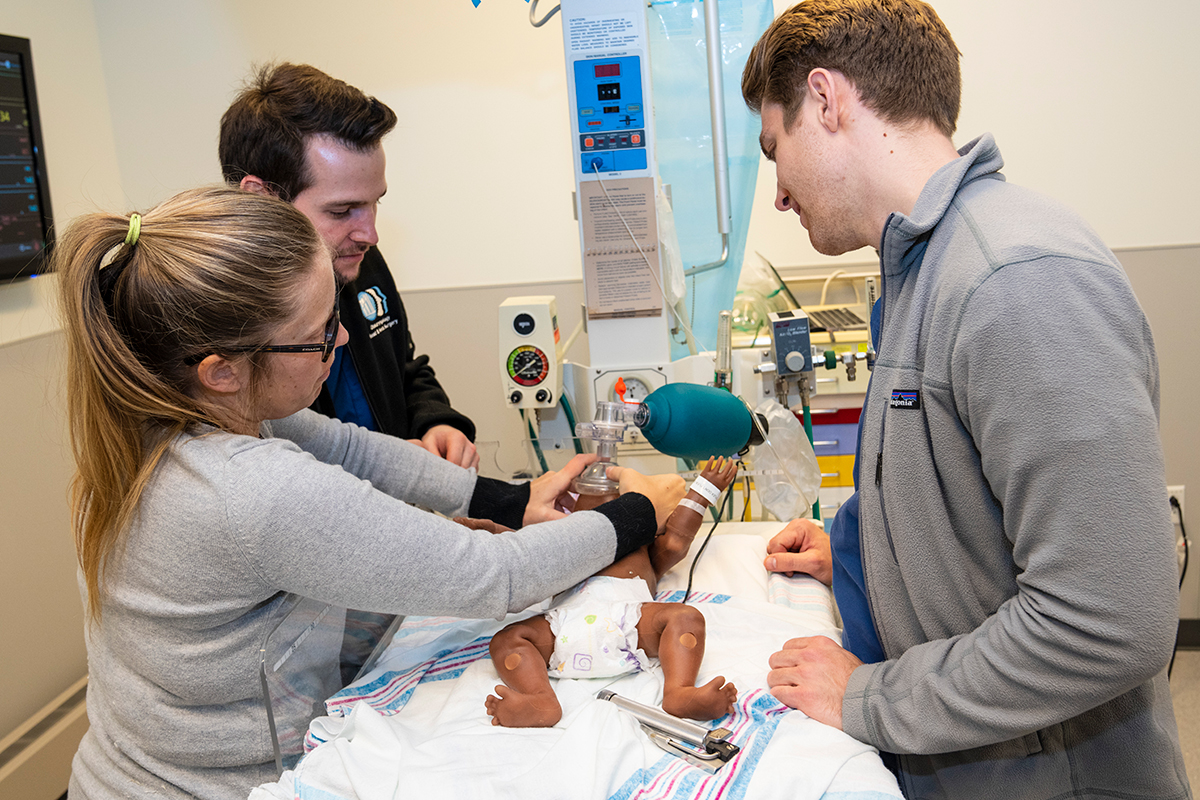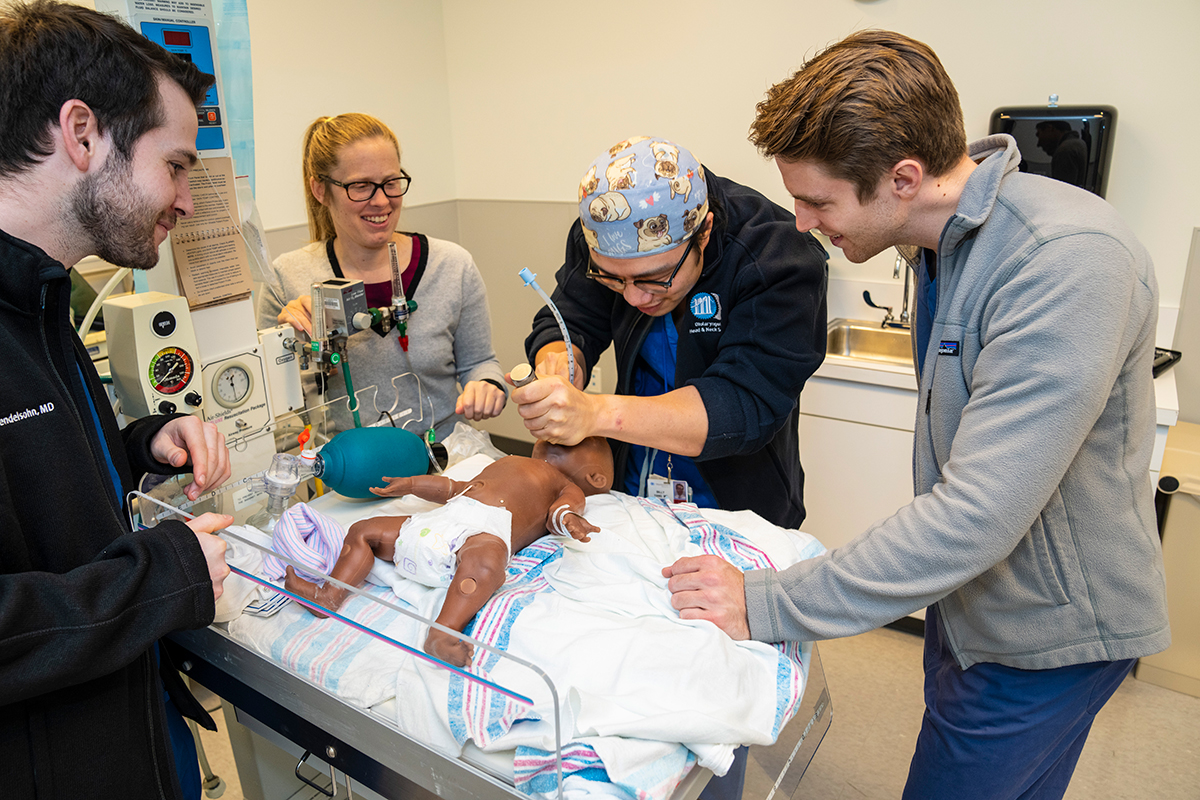Simulation Based Learning
Surgical simulation has become an important part of otolaryngology resident education. The practice of procedures to gain agility in a controlled setting allows greater confidence, skill and learning in the operating room. Simulation as an educational tool also places the resident learner in clinical scenarios to practice decision-making which prepares them for similar patient encounters with the goal of improving clinical knowledge, clinical judgement, communication skills, and team-work. Simulation sessions are held with small groups (no more than three residents at a time) in the Downstate Center for Healthcare simulation, a new state of the art center with over 10 rooms for operating, procedural and examination scenarios.
Center for Healthcare Simulation
Otolaryngology Simulation Education
We had our first ever head and neck ultrasound course in the Simulation Center, lead by our chief of head and neck surgery Dr. Sundaram.
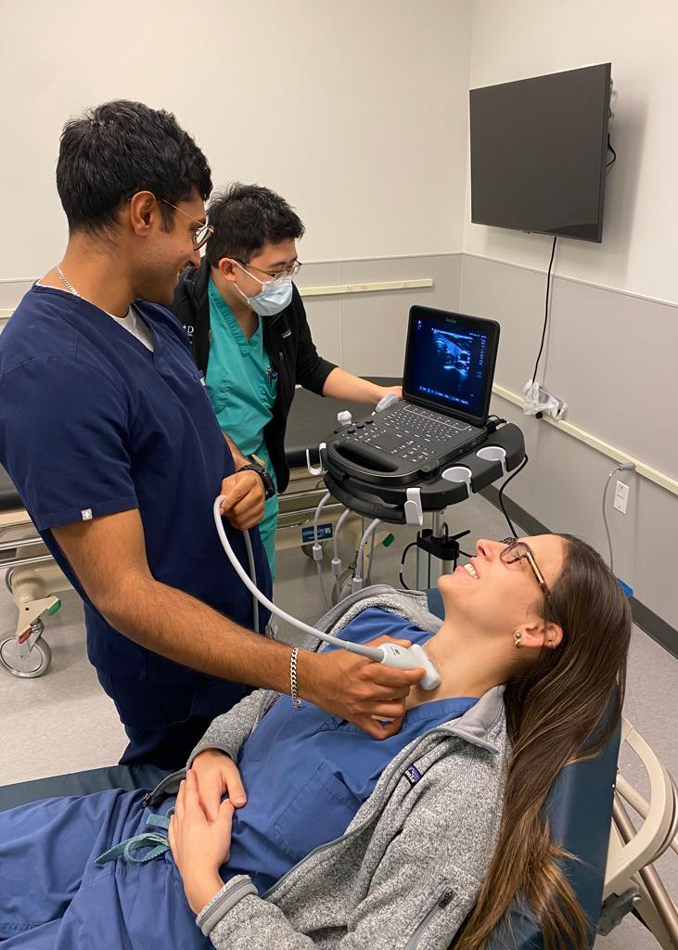
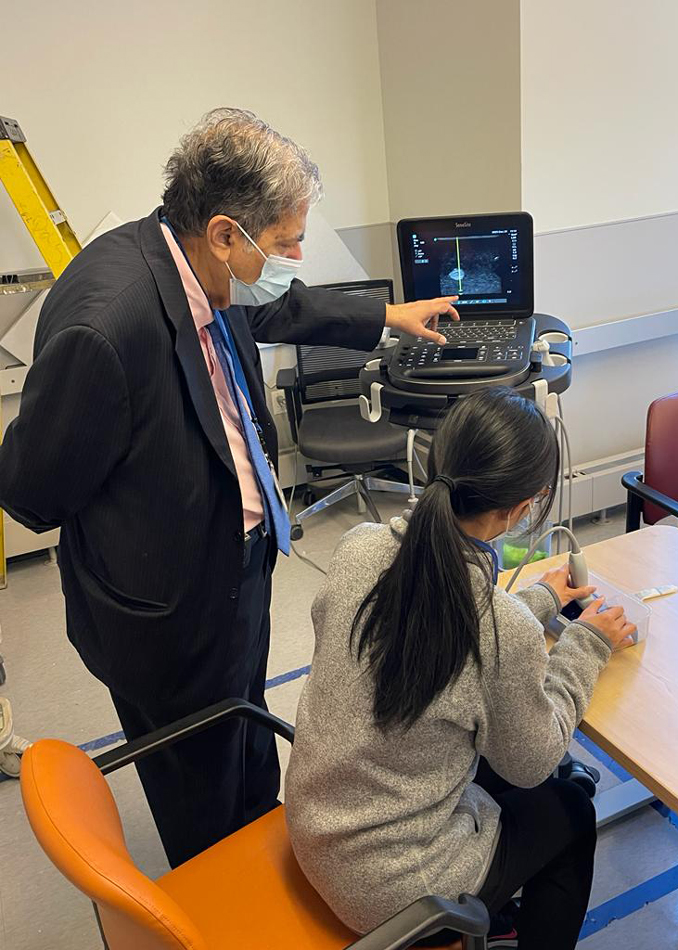
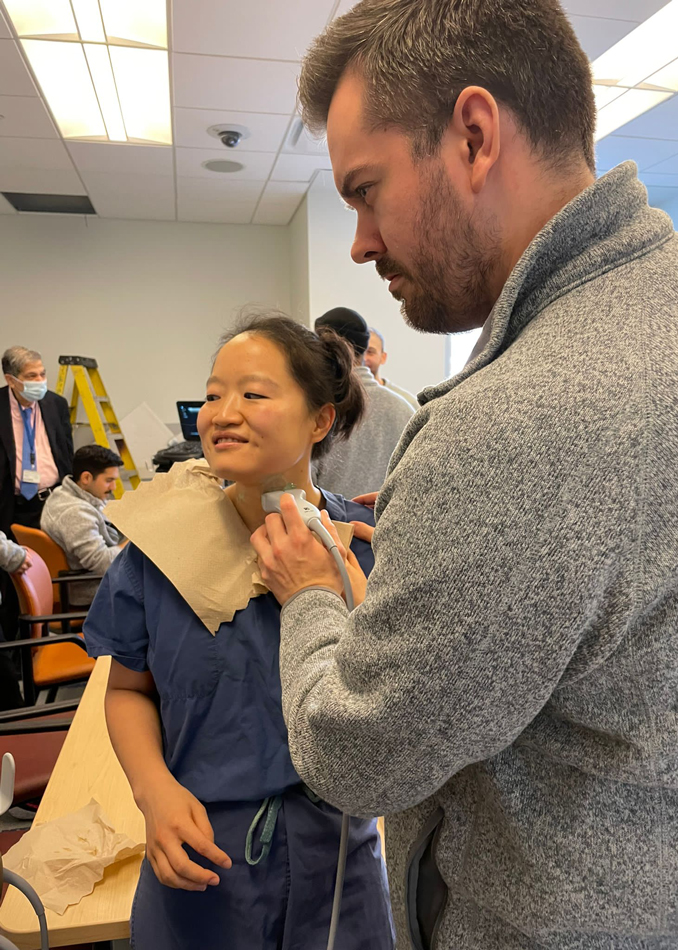
Dr. Ann Plum is the chief of pediatric otolaryngology and leads simulation education for the department of otolaryngology. She was a faculty member for the 2022 University of Pennsylvania Otorhinolaryngology Resident Simfest.
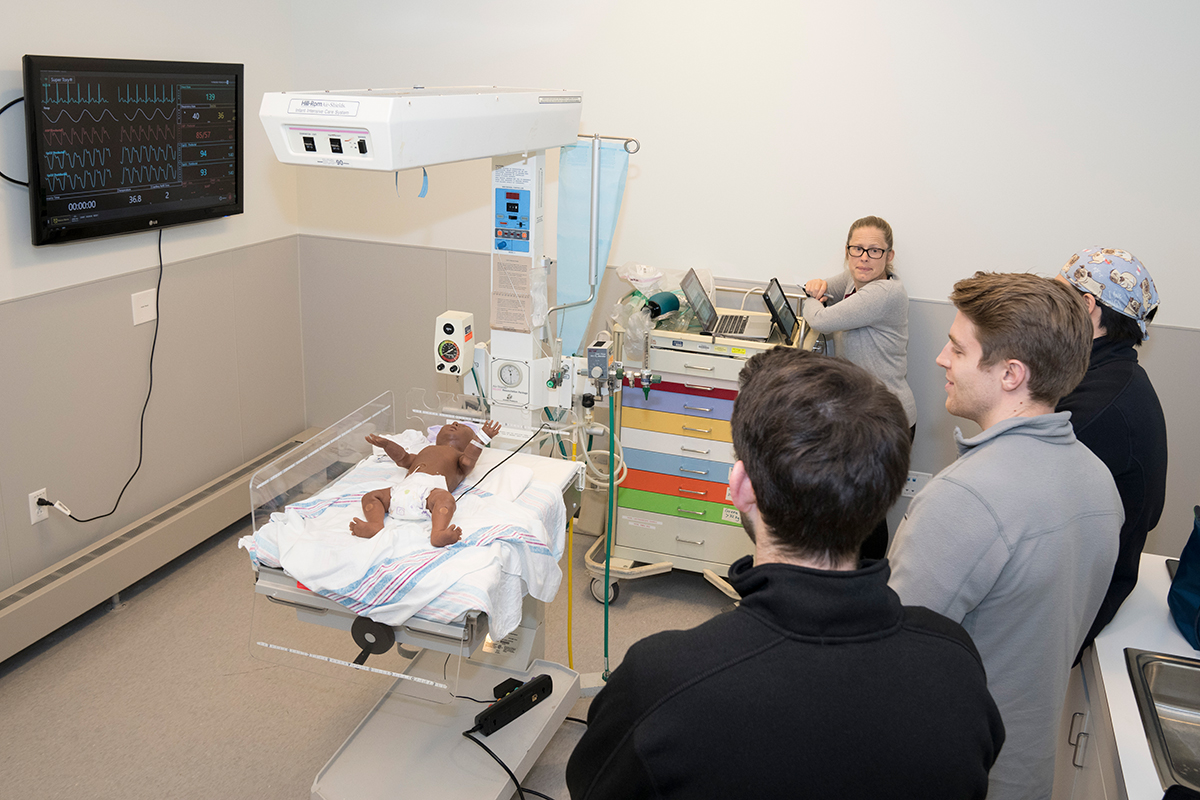
Dr. Ann Plum, pictured with Downstate otolaryngology residents in the Downstate Simulation Center.
